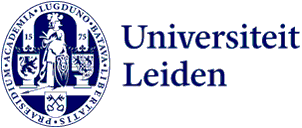Honours class students do research into confidence in the justice system
Students from the ‘Public confidence in the criminal justice system’ Bachelor’s Honours Class completed this course with their presentations at the final session on Tuesday 25 May. What is unique about this honours class is the collaboration with The Hague University of Applied Sciences and the Court of Justice in The Hague.
With 14 students from different disciplines such as law, public administration, psychology, history, international relations and criminology, the honours class focused on public confidence in the criminal justice system. Overall, public confidence in the Dutch judiciary is relatively high, but it is lower among people with a lower level of education and the residents of areas with socio-economic problems, such as the Bezuidenhout-West district in The Hague. The students visited this district and spoke to community police officers, youth workers and residents to find out more about their experiences of the justice system.
Input from theory and practice
What is unique about the Honours Class is that it is in collaboration with The Hague University of Applied Sciences and the Court of Justice in The Hague. Its initiator, Rogier Hartendorp, is not only a senior judge at the court, but also Professor by Special Appointment in Societal Effectiveness of the Justice System at Leiden University. The collaboration with The Hague University of Applied Sciences came about through his colleague Danielle Chevalier, Assistant Professor at the Van Vollenhoven Institute. She came into contact with Robert Duiveman, an associate lector at The Hague University of Applied Sciences, during a City Deal meeting – a coalition between parties including the municipality of The Hague, The Hague University of Applied Sciences and Leiden University. Together, the three developed the Honours Class.
Topical
‘We had nothing but enthusiastic responses when we asked people if they’d like to participate,’ says Chevalier. The resultant course has input from theory and practice, with lectures from juvenile judges from the Court of Justice in The Hague, youth crime lawyers and a social studies teacher from a secondary school. ‘Confidence in the legal system is a topical subject that affects many different people,’ says Chevalier. ‘Their stories provide insights that go beyond what you read in the newspapers.’

Ethnic profiling or not
The students developed vignettes that they presented at the final session to Johan Visser, who is on the board of the Court of Justice in The Hague. The vignettes were hypothetical situations that the students presented to people and asked how they would respond. This included asking community police officers how communication can improve their communities’ confidence in the legal system. In one scenario the police stops a young person with a migrant background because they are driving a car with a registration number that is associated with a crime. If the young person isn’t told why they’ve been stopped, they are likely to assume this is ethnic profiling. Unfair treatment by the police can affect young people’s confidence in the justice system.
Broken promises
Another group of students spoke to youth workers. If they want to gain people’s trust, they must never break their promises. If they were to break a promise, the resultant distrust can become distrust at a higher level, so in the justice system itself. The students also asked members of the community association how they could get young people more involved in the association and thus increase their confidence in the authorities. One solution would be to use social media to increase their sense of connection with the community association.
Successful investigation
It’s unclear whether the Honours Class will be taught next year, says Chevalier, but if you ask her it would be well worth repeating. ‘The whole process of developing the course was great fun. The research was an adventure for the students, despite the necessity of online classes. And they had to struggle through a huge pile of literature. But it was a hugely successful investigation for them.’
Text: Carin Röst
